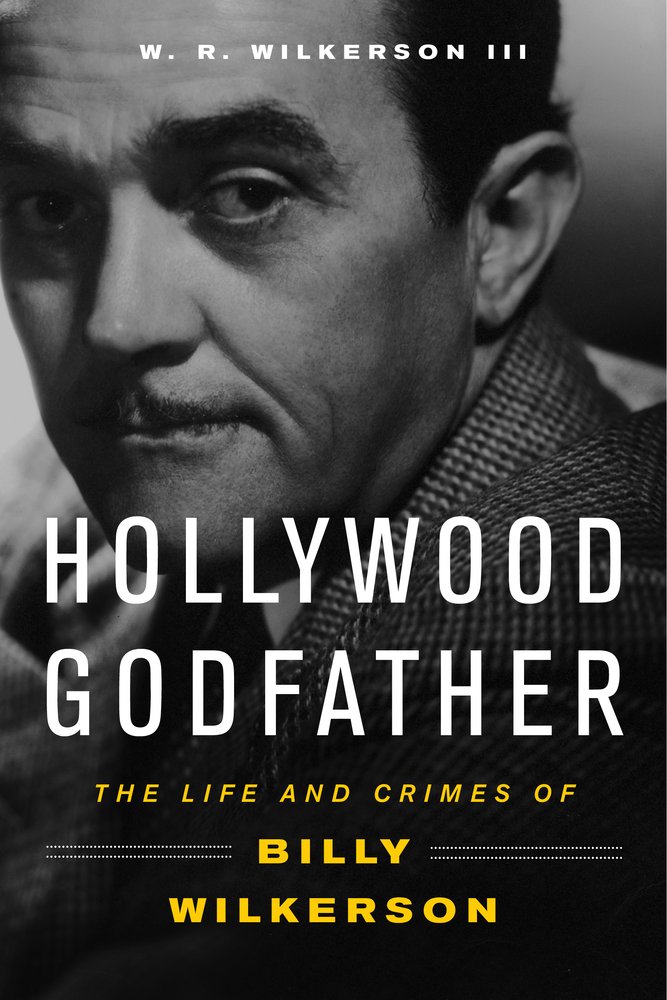Billy Wilkerson, Book 2, Part 3: The Dark Side
As prohibition ended, organized crime, needing new revenue streams, began looking at the movie industry. Mobster Johnny Rosselli approached William Richard “Billy” Wilkerson about taking over Hollywood labor unions. According to the biography I’m reading, Billy brought in Joseph Schenck, head of 20th Century Fox, and the trio formed the Hollywood Syndicate. The group helped gangster George Browne get elected as the president of the International Alliance of Theatrical Stage Employees (IATSE), and Browne appointed Willie Bioff, also a gangster, as “his personal representative.” If IATSE called a strike, no movies could be produced. The Hollywood Syndicate started extracting a roughly $ 50,000-a-year bribe from each studio.
Around this time, Edith and Billy divorced. Edith was frustrated by their inability to have children and blamed Billy for not paying his 1929 debt to the New York City loan shark when her sister disappeared. Even though they divorced in August 1935, Edith continued working at The Hollywood Reporter until she retired in 1948. Billy was about 45, and he didn’t stay single long. In September, he met 20-year-old Rita Anne “Billie” Seward and married her by the end of that month. Billie’s brother, Tom Seward, became Billy’s right-hand man.
Gossip was a big part of what the Reporter published, and it sometimes led to scandals. This rubbed the studios the wrong way, and they would pull advertising from the publication. Billy’s response wasn’t always aboveboard. Sometimes he’d sell the same charity ad to several sponsors. Billy’s trick was to name only the charity in the ad, not the sponsor, so he could sell the ad up to a dozen times. This and other questionable tactics helped Billy fight back against the studios, and by 1936, the Reporter was known as “Hollywood’s Bible” and was capable of launching or killing careers. The studios had to respect the power Billy wielded.
As Billy’s success continued, he wanted to expand. He viewed London as a rapidly growing film market and launched the London Reporter in 1936. But British advertisers were part of an old-boy network, and Billy wasn’t invited in. The publication failed within five months. Billy next expanded his building and decided to try a new concept in the unused space. He started a high-end barbershop and men’s clothing store called Sunset House. It failed, and Billy lost $250,000.
By 1937, Billy’s marriage was falling apart. Billie wanted to adopt children, but the sterile Billy refused. In 1938, they divorced. That wasn’t the only thing falling apart. The Hollywood Syndicate was having problems with Bioff. Drunk on power, be began shaking down people the Syndicate hadn’t approved. Then he took things to the extreme and started to shake down Billy, demanding 50% of his restaurant profits or he’d have the workers strike at Café Trocadero. He demanded a $100,000 monthly payment from Schenck to avoid a strike at his 20th Century Fox studios. Both men agree to pay, with Billy paying roughly $20,000 a month. That same year, Billy decided he wanted out of the restaurant business and hired gangster Nola Hahn to stage a kitchen fire at Café Trocadero. Billy collected the insurance money and sold the property to Hahn for $268,000.
Billy’s problems were far from over. The secretive Hollywood Syndicate wouldn’t remain a secret for much longer.




